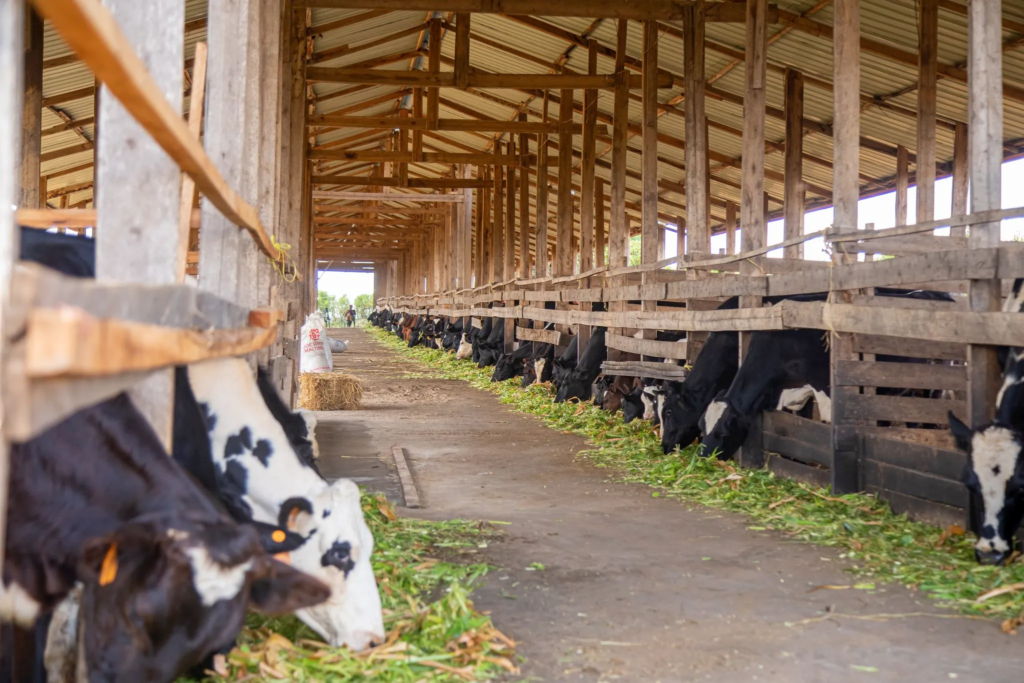A few days ago, the Cabinet Secretary for Agriculture Dr Andrew Karanja launched the 2024 Study Report on Milk Production Costs and Profitability, which details the significant contribution of the sector makes in uplifting the living standard of many Kenyans as well as the challenges it must yet surmount to live up to its full potential.
With annual production of more than five billion litres each year, Kenya currently contributes at least 10% of Africa’s total milk production and 35% of the East African Community’s supply. The sector supports over 1.8 million smallholder farmers and contributing about 4% to our GDP, making it a crucial cog in the wheel of our national progress.
Indeed, it is now widely acknowledged that the dairy sector can also play a significant role in achieving a number of the Sustainable Development Goals (SDGs), including food security, combating hunger, ending poverty, promoting health and well-being as well as supporting decent work and economic growth.
In my recent dialogue with one Dr. Ignatius Kahiu, a seasoned expert in sustainable agricultural development, we found ourselves reflecting on how far this sector has come and the innovative solutions that could yet redefine the trajectory of the sector and improve the lot of millions of farmers.
The sector still grapples with high production costs and infrastructural inefficiencies, both of which have been exacerbated by climate variability. These issues not only diminish productivity but also the profitability that our diligent farmers rightfully deserve. A recent study by the International Livestock Research Insitute (ILRI) for instance, found a yield of gap of between 39% to 49% in milk production in most parts of the Rift Valley. This means that most cows in the region are producing way less than their full potential, thereby undercutting possible earnings.
These challenges call for a complete rethink of the sector. The recent initiative by the Kenyan government to vaccinate 22 million cattle is an important starting point. Livestock vaccination is critical for improving productivity as it helps prevent the spread of diseases, reducing animal mortality and morbidity. Healthy livestock are more productive, yielding better, while also improving reproductive performance. This initiative, critical for boosting livestock health and milk productivity, however, hinges on transparency and integrity in its execution. Ensuring that every step taken is accountable is essential for building trust and ensuring the benefits reach every farmer involved.
Secondly, we must leverage recent technological innovations to the make the dairy sector more efficient. We should, for instance, invest in automated milking systems and solar-powered cooling units. Adopting solar-powered units could reduce milk spoilage rates significantly, which currently cost the industry millions in lost revenue annually. Further such initiatives would also serve to reduce the carbon footprint of the sector which together with the meat industry currently contributes at least 14.5% of greenhouse gas emissions globally.
Expanding market access and enhancing value addition also hold transformative potential. Currently, only about 40% of our milk undergoes processing. By scaling this to at least 60%, as aimed by the latest initiatives, we can stabilize market prices and enrich consumer choices with high-quality dairy products like cheese and yogurt. This not only secures higher revenues but also promotes better nutrition across the country.
Educational initiatives are equally critical. The plan to expand training programs to equip farmers with modern agricultural techniques and insights into sustainable practices is long overdue. Such knowledge empowers farmers, transforming them into advocates of growth and sustainability within their communities.
Collaborations with international donors, agricultural tech firms, and local governments are paving the way for a more integrated and technologically advanced dairy sector. We can leverage such partnerships to enhance operational efficiencies and foster a culture of innovation and compliance with global quality standards.
Through these concerted efforts, we can transform our dairy sector into a beacon of economic stability and a symbol of sustainable development, to nourish Kenyan families for generations to come. Think Green, Act Green!



